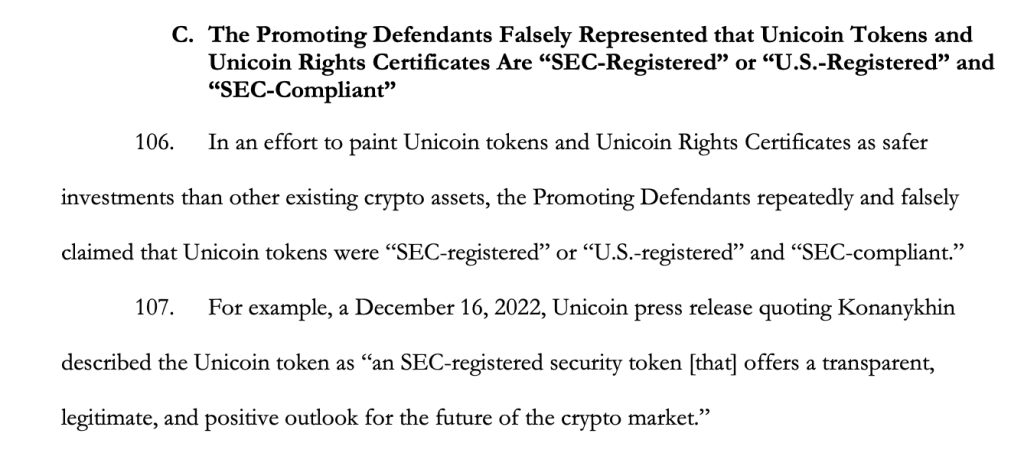SEC Hammers Unicoin With Fraud Charges Over $100M Token Debacle
Another day, another crypto project getting the regulatory hammer—this time it’s Unicoin in the SEC’s crosshairs. The alleged $100M token sale scam proves the ’wild west’ era isn’t quite over, no matter how many suits try to tame it.
When will crypto startups learn? Pitching dreams of decentralized utopias while allegedly running old-school Ponzi schemes just invites the feds to the party. Maybe next time, skip the fraud—or at least don’t put it in writing.
Bonus jab: Nothing says ’financial innovation’ like recycling the same scams with a blockchain wrapper. The more things change…
 Image Source: SEC
Image Source: SEC
Unicoin “Asset-Backed” Certificates Didn’t Exist, SEC Alleges
Investigators also allege that Unicoin told investors it had sold more than $3b of certificates. However, total proceeds never exceeded $110m. Additionally, the filings state that the company falsely portrayed its offerings as SEC registered.
The agency’s complaint details how Unicoin used extensive promotional efforts, including ads in major airports, on New York City taxis, on television and across social media channels.
Through these campaigns, more than 5,000 investors were persuaded to buy rights certificates described as SAFE and profitable “next generation” crypto assets. The SEC says the bulk of those sales were illusory.
Unicoin’s Legal Counsel Devlin Fined $37,500, SEC Pursues Director Bars
Additionally, the SEC alleges that Unicoin and Konanykhin breached federal securities registration rules. Specifically, it claims Konanykhin sold nearly 38m of his own certificates at discounted prices. Furthermore, he targeted investors the company had previously barred to preserve its registration exemption.
Consequently, the regulator is seeking permanent injunctive relief. In addition, it wants disgorgement of ill-gotten gains with prejudgment interest. It is also pursuing civil penalties and officer-and-director bars.
Moreover, the commission’s action names Richard Devlin, the company’s general counsel. It accuses him of negligently repeating similar misstatements in private placement materials. Now, Devlin faces charges alongside the other defendants.
Without admitting or denying the allegations, Devlin consented to a final judgment that imposes permanent injunctive relief and requires him to pay a $37,500 civil penalty.
This enforcement differs from earlier SEC cases against unregistered token sales in that it focuses on rights certificates and fictitious asset backing, rather than direct token offerings.
Past actions, such as those against Telegram and Kik, centred on the lack of registration for token distributions. By contrast, the Unicoin case alleges an elaborate marketing scheme built on false promises of real-world collateral.

